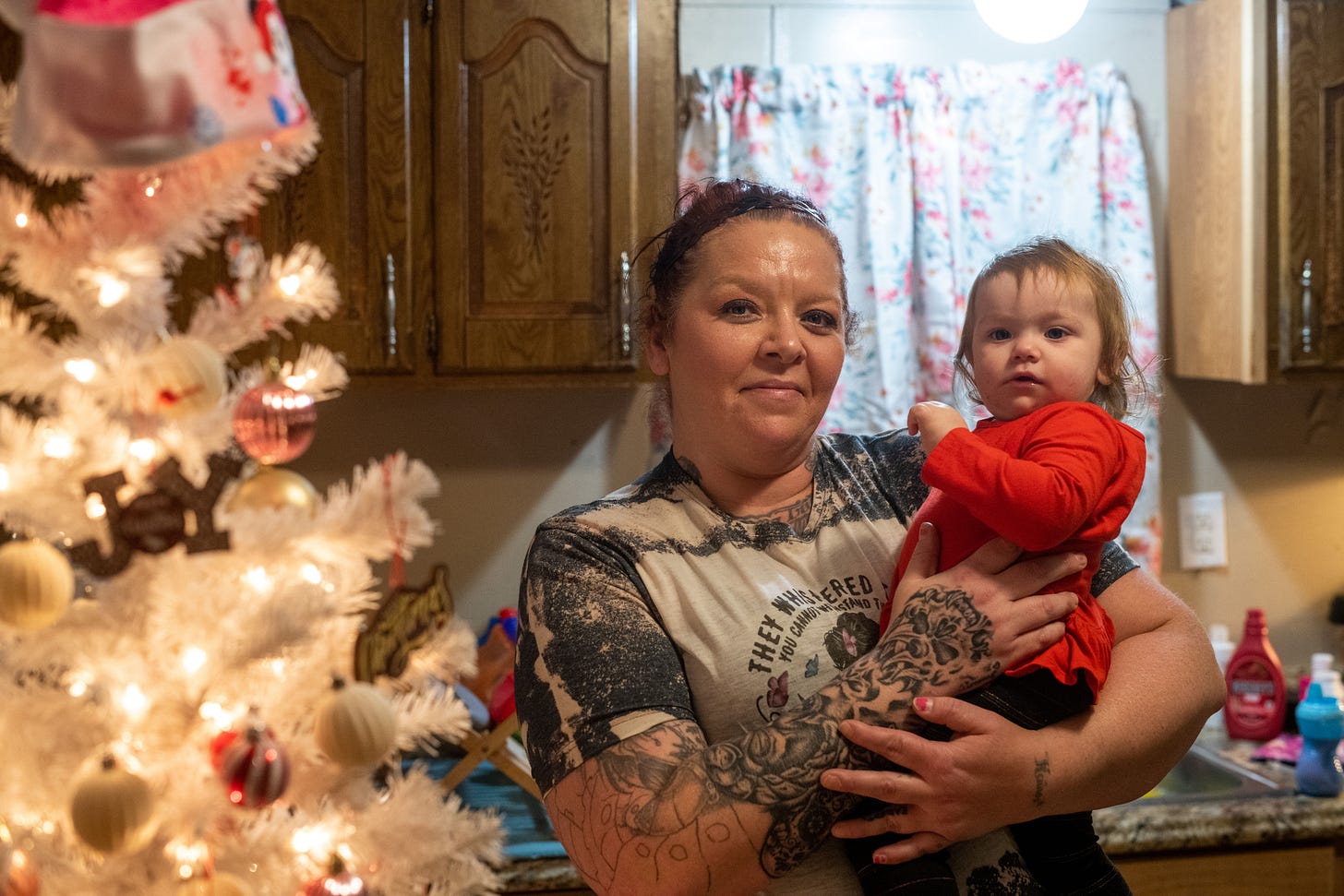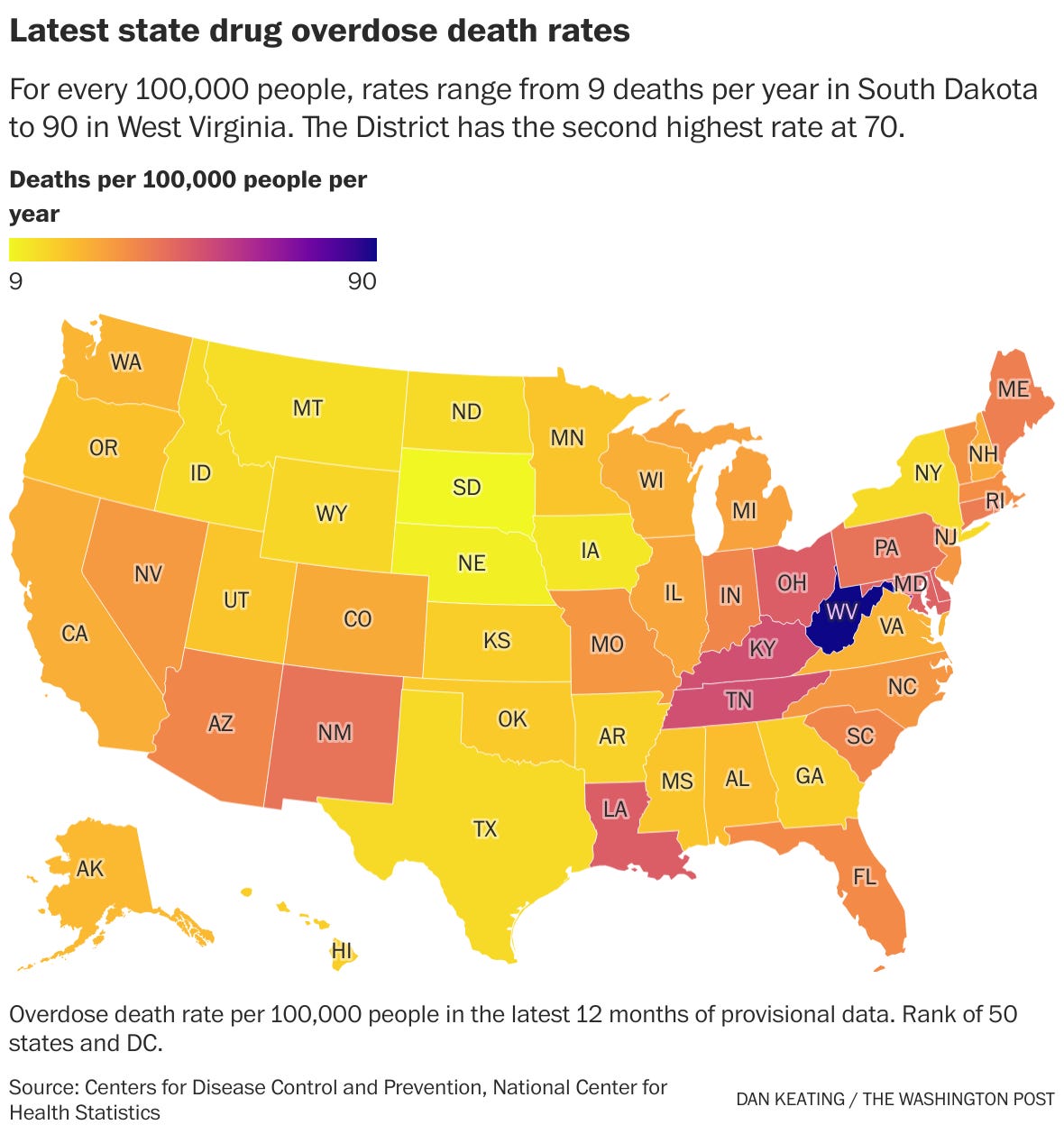Report: W.Va. Terminates Parental Rights at Twice the Rate of Any Other State
A new study from ACLU and Human Rights Watch reveals W. Va. leads nation in termination of parental rights.

Dec. 7, 2022 • Written by Kyle Vass
Christina Langley used to use heroin. But, when Langley found out she was pregnant at seven weeks, she committed to quitting.
“I went to the hospital and got in a program for expecting mothers in recovery,” said Langley, who is from Lincoln County, W. Va.
As part of the Maternal Addiction Recovery Program, Langley was prescribed Subutex – a medicine that satisfies cravings and blocks the effects of opioids.
“I was in total compliance with the program,” she said.
For nine months, Langley passed weekly drug screens and did whatever it took to make sure her baby would be born healthy, she said. Her daughter, Magnolia, was born without health complications. However, within 24 hours of Langley giving birth, the complications surrounding her usage of an FDA approved, doctor prescribed medication emerged.
Hospital staff drug tested Langley after delivery.
“The only thing in my urine was my medicine,” she said. Within 24 hours of giving birth, a worker with West Virginia Child Protective Services showed up in her hospital room and began to interview her. A few days later, she received a call to her hospital bed.
She was told CPS had filed a petition to take Magnolia. Langley was told she had to leave the hospital and avoid any contact with her newborn child who was less than a week old.
Despite the fact that Langley had quit heroin and didn’t test positive for street drugs, she was mandated by the courts to complete an inpatient treatment program for drug use prior to regaining custody of her child. After missing the first thirteen months of Magnolia’s life, Langley and her daughter were reunited.
Langley, who narrowly avoided having her child taken away forever, explained she is the exception.
“I know so many girls who relapse when something like this happens,” she said.
Ashley Omps, who now works as an organizer with the West Virginia Family of Convicted People, said the day she learned she’d never see her child again prompted a relapse from which she has only recently been able to recover.
Speaking from a recovery center in Charleston, Omps described how after a year of completing a Child Protective Services plan to regain custody, the agency altered her requirements.
Under her altered plan, Omps wouldn’t be able to have her custody rights restored until a police agency in her hometown closed the investigation into the suicide death of her partner of 12 years.
In the three years that case has been open, no one has been charged or named as a suspect in his death, according to Omps. She hasn’t seen her child since the night she lost her partner to suicide. She believes the department is keeping it open indefinitely to prevent her from restoring her custody rights.
While Omps and Langley had different outcomes, both women were forced to navigate child welfare services in a state that is particularly hostile to parents seeking to regain custody of their children. A report published by ACLU and Human Rights Watch found West Virginia terminates parental rights at the highest rates in the nation, with parents more than 4 times as likely to have their legal rights severed than parents in 42 states, and 29 times more likely than parents in Maryland, the state with the lowest rates
The report documents the various ways states fail to provide families with adequate resources to meet their needs, opting instead to remove children, and subject families to surveillance and regulation disproportionately impacting Black and Indigenous families, and families living in poverty. In cases where parental substance use was a factor, the report found that state child welfare systems often respond punitively and “without consideration of the ability to parent or without clear evidence of harm or risk of imminent harm to the child.”
Along with being one of the poorest states in the nation, nowhere in the country is the impact of the opioid crisis more profoundly seen than in West Virginia, where the termination of parental rights is as much of a national outlier as is the overdose mortality rate.
In one incident detailed in the report, West Virginia child protective services sought continued family separation, alleging that Buprenorphine (a medicine similar to the one used by Langley) had “impaired [the] judgment and parenting skills” of two parents who had been in recovery for many years.
However, despite leading the nation in overdose deaths by a significant margin, attitudes towards embracing evidence-based approaches remain scant in governments throughout the state. Last year, the West Virginia Legislature effectively banned harm reduction programs in and the Division of Corrections and Rehabilitation was found to be routinely denying incarcerated people access to their opioid use disorder medications in correctional settings.
As for the upcoming year, Senator Randy Smith (R – Tucker) announced last week that he will be proposing legislation that brings eugenics into plea negotiations. As reported in the Cumberland Times-News, Sen. Smith told an audience at a town hall meeting, “If you’re a woman, then you get your tubes tied, so you don’t bring any more drug babies into the system. Now, you don’t have to. If you don’t you’re going to jail for a very long time. If you volunteer for the program, then you get a lesser sentence.”
Eli Baumwell, Advocacy Director for the ACLU of West Virginia said Sen. Smith’s calls for eugenics are emblematic of larger trend: lawmakers in the state dehumanizing people by doubling down on the failed war on drugs. “Ignoring evidence-based approaches to addiction and recovery is leading to skyrocketing HIV and overdose rates. ACLU-WV will use everything at our disposal to make sure this heinous bill and others like it never become law.”
The report’s author, Aryeh Neier fellow Hina Naveed, added that the way forward for states is to shift the way we think about addressing poverty. In a press release that accompanied the report, Naveed said, “Parents need resources to help provide for their families, but what they are getting is surveillance, regulation, and punishment.”





